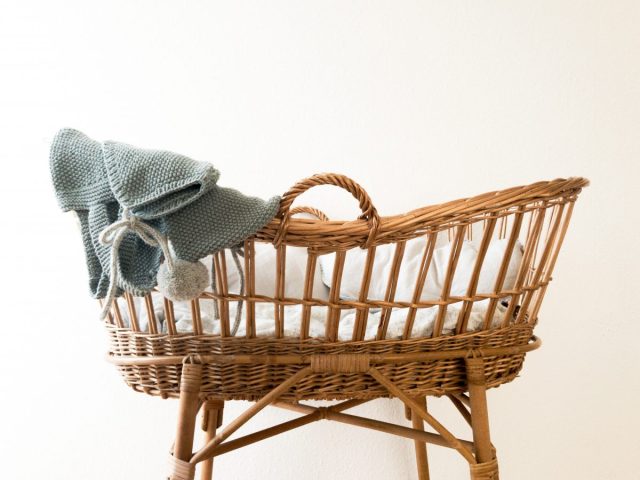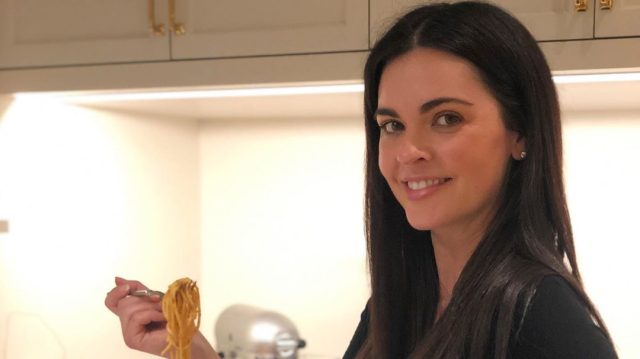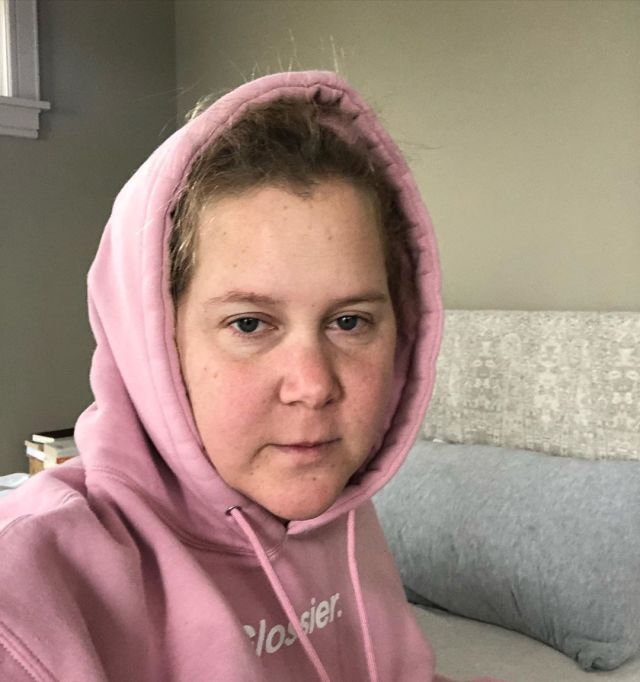Photo: Glenn Carstens-Peters via Unsplash
I sat with my arms cradled around her. I had stopped rocking at some point, but I wasn’t immediately aware of that. She wanted to eat, again, as she had wanted to do every hour for—how long? A day? Three days? I hardly knew. But it didn’t matter. And I had no care to think of when I had last slept or showered or eaten. In this moment nothing mattered except the pain of her relentless and inefficient nursing.
“We should see a lactation consultant,” my husband urged.
“Maybe tomorrow.” But it didn’t matter. It was something to feel. My stitches. My bleeding breasts. It was all I knew amidst the blur of sleeplessness.
I sat with my arms cradled around her and stared but did not see. I felt but did not feel. These moments of almost catatonic staring would pass only to be replaced with uncontrollable tears or the obligatory motions of going through the day and tending to my baby.
Occasionally I would catch my husband gazing at me with a look I had never seen before in the sixteen years I had known him. A look of pity? Concern? Fear?
All I knew is that it scared me.
Who was this person I had become? I recognized nothing of this woman in whose stretched and flabby skin I was existing. Physically, emotionally, spiritually, I didn’t know this new self. And I didn’t like her either.
“Will I ever be myself again?” I whispered underneath sobs to my husband.
“I don’t know,” he replied. “What can I do to help you?”
“I don’t know.”
These answers scared both of us.
We had prayed for this. For three years we struggled to conceive a child. Now she was here—but where was I? We had asked for this, spent money and energy to have this. I should be happy, I thought. The guilt of this overwhelmed me.
I’m a horrible mother. I can’t take care of a baby. I can’t even take care of myself. I can’t do this. I was wrong to want a baby.
The lies screamed so loudly through my mind that I heard nothing else.
And so I sat with my arms cradled around her and just stared into this cloud of darkness—for a day? Three days? Three months?
Others had commented that the first few weeks would be the hardest, that it would get better. The first few weeks passed, but the clouds did not. For all I could see, the skies were endlessly gray.
I watched as my husband looked lovingly at our little girl. From the moment of her birth he doted on her. The clouds thickened, and in this deepening darkness an irrational jealousy took hold of my thoughts. I didn’t feel love for this little person who cried and kept me from sleeping. And I felt anything but loveable myself. I felt jealous both of his ability to adore her and for his affection towards her instead of—according to my horribly skewed perception—towards myself.
At my postpartum follow-up appointment, my midwife finally named what I was too ashamed to admit:
“Postpartum depression. It’s very common. It’s not your fault.”
But wasn’t it? It’s because I’m a horrible mother. The lie screamed too loudly for me to hear rational thought.
“Let’s schedule another follow-up,” she suggested, “after you’ve seen a counselor.”
A counselor? But therapists are for people who are failures. I’m a horrible mother. I’m a failure.
Again the lies screamed.
That weekend my husband and I had dinner plans with friends. I told myself I was excited. Surely a good meal, a good beer and good conversation with friends were all I needed. Yes, I told myself, I just needed to get out.
However, instead of an enjoyable and rejuvenating evening, I sat at the table desperately, exhaustingly willing myself to engage.
What did she just say? Why can’t I focus? The night passed, but I was hardly present and hated myself for it. On the drive home I broke down. I was utterly ashamed—of what? Of being?
I can’t do this. I do have postpartum depression. I am a failure. It’s all my fault.
Amidst the darkness my irrational thinking only screamed more loudly.
“I’ll make an appointment with the counselor for you,” my husband said. I nodded as the tears continued to stream down my face.
I’ve since learned more about postpartum depression. It can happen to anyone and is, ironically, quite common among those who previously struggled with infertility. It often occurs because of the sudden drop in the hormone progesterone that women experience after giving birth. For some women, this sudden withdrawal of progesterone creates feelings of depression and anxiety. Mixed with the drastic life change and sleep deprivation that accompany caring for a newborn, the postpartum period can be an especially dark and trying time.
According to the CDC, an estimated 1 in 9 women experience some degree of postpartum depression. With such a high statistic, why does it seem to be such a taboo subject? Perhaps the feeling of guilt that often accompanies this experience clouds any clear understanding of it and prevents a woman from asking for the help she needs.
Eventually I pursued treatment through NaProTECHNOLOGY, the same medical science I had used to treat my infertility in the first place. For postpartum depression I received supplementation of bioidentical progesterone. With elevated progesterone levels, the cloud of depression lifted.
Combined with ongoing counseling sessions, I began to find myself. The various things I loved once again became enjoyable: reading, writing, even getting out for a jog. I could go to dinner with friends and engage—and laugh!
Now I can look back on those first few months and see it for what it was. I’m still learning to sift through some of the lies that took root during that dark time, but I am healing and learning to love myself as a new mom…
And falling in love with my precious baby girl—oh how I love her!
I recently looked back at photos of my baby girl just a day old in the hospital. What a beautiful baby she was, just as much then as she is now, although my vision was too clouded at that time to see it. As I looked at these photos, I felt like I was seeing her day-old self for the first time, this time through my own clear eyes, the eyes of a mother who absolutely adores her precious baby.
The old lies still echo in my mind from time to time, but I’ve learned how to recognize them for what they are and to quiet them with truth.
I’m a horrible mother—
But she’s healthy and growing. Little rolls round out her thighs.
I’m a horrible mother—
But she’s happy and smiles when I sing to her.
I’m a horrible mother. She deserves better—
But she quiets when I cradle her in my arms. She turns her eyes towards my voice and smiles and coos, eyes lighting up when I smile back. She relies on me for nourishment, and her cheeks are becoming increasingly plump.
I am not a horrible mother.
I am a mother who is learning and a mother who loves.
*****
If you think you may be struggling with postpartum depression or postpartum anxiety, please know that it’s not your fault and you’re not alone. Not only have many, many women struggled with this, but there is hope for you. Make an appointment with a counselor who specializes in postpartum depression (counseling is actually pretty great!) and get the care you need—the care you deserve.
You got this, momma!
Maria Bruce lives in New Orleans with her husband and daughter and works as the communications director for a women's healthcare and pregnancy center. She has an MA in English and loves to squeeze in a little reading and writing whenever the elusive free time appears.

















